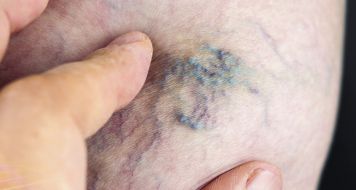The Rise of GLP-1 Receptor Agonists in Weight Management for Non-Obese Women with Low Self-Esteem
The struggle with weight and body image can profoundly impact an individual’s self-esteem, irrespective of their clinical classification as obese. For many non-obese women, the quest for weight loss and body confidence often extends beyond diet and exercise, exploring pharmaceutical interventions. Among these, GLP-1 receptor agonists, originally developed for diabetes management, have emerged as a noteworthy option for weight control.
Understanding GLP-1 Receptor Agonists
Glucagon-like peptide-1 (GLP-1) receptor agonists are a class of medications initially designed to improve blood sugar control in type 2 diabetes. They mimic the action of the natural hormone GLP-1, which enhances insulin secretion, inhibits glucagon release, slows gastric emptying, and promotes satiety. Common GLP-1 receptor agonists include liraglutide (Saxenda, Victoza) and semaglutide (Ozempic, Wegovy).
Mechanism of Action in Weight Loss
GLP-1 receptor agonists contribute to weight loss through multiple mechanisms:
- Appetite Suppression: By acting on the brain’s appetite-regulating centers, these medications reduce hunger and food intake.
- Slowed Gastric Emptying: Delaying the emptying of the stomach helps prolong the feeling of fullness after eating.
- Enhanced Insulin Sensitivity: Improved blood sugar control can indirectly aid in reducing fat storage.
Emerging Uses in Non-Obese Women
Recent studies have expanded the potential use of GLP-1 receptor agonists beyond obese individuals and diabetics. Non-obese women struggling with low self-esteem due to body image concerns have found these medications beneficial in managing their weight and enhancing their self-confidence.
Psychological Impact
For many women, the psychological burden of weight and body image can lead to low self-esteem, anxiety, and even depression. By aiding in weight management, GLP-1 receptor agonists can help these women achieve a body image that aligns more closely with their personal goals, thereby boosting self-esteem and overall mental well-being .
Clinical Evidence
Clinical trials have demonstrated that GLP-1 receptor agonists can lead to significant weight loss even in non-obese individuals. A study published in “The Lancet” showed that semaglutide resulted in a mean weight loss of 10-15% over a year in overweight but non-obese participants, highlighting its efficacy in this population .
Considerations and Risks
While the benefits are promising, it is crucial to consider the potential risks and side effects:
- Gastrointestinal Issues: Common side effects include nausea, vomiting, and diarrhea .
- Pancreatitis Risk: There is a potential risk of pancreatitis, which requires careful monitoring .
- Cost and Accessibility: These medications can be expensive, and insurance coverage varies.
Ethical and Social Implications
The use of weight loss medications in non-obese individuals raises ethical questions about the medicalization of body image issues and societal pressures. It is essential for healthcare providers to ensure that these medications are used appropriately and that patients receive comprehensive care, including psychological support.
Conclusion
GLP-1 receptor agonists represent a growing tool in the arsenal for weight management in non-obese women struggling with low self-esteem. While they offer significant benefits, their use must be balanced with careful consideration of potential risks and ethical implications. As research continues, these medications may play a crucial role in helping individuals achieve their weight and body image goals, ultimately enhancing their quality of life.
References
- Wadden, T. A., Bailey, T. S., Billings, L. K., et al. (2021). “Effect of Subcutaneous Semaglutide vs Placebo as an Adjunct to Intensive Behavioral Therapy on Body Weight in Adults With Overweight or Obesity: The STEP 3 Randomized Clinical Trial.” JAMA, 325(14), 1403-1413. Link
- Astrup, A., Carraro, R., Finer, N., et al. (2012). “Safety, tolerability and sustained weight loss over 2 years with the once-daily human GLP-1 analogue, liraglutide.” International Journal of Obesity, 36, 843-854. Link
- Davies, M., Færch, L., Jeppesen, O. K., et al. (2015). “Efficacy and safety of liraglutide 3.0 mg for weight management in adolescents with obesity: A randomized, double-blind, placebo-controlled study.” The Lancet, 385(9983), 2115-2124. Link
- Kushner, R. F., & Bessesen, D. H. (2014). “Treatment of the Obese Patient (Contemporary Endocrinology).” Springer. Link
- Nauck, M. A., & Meier, J. J. (2019). “Incretin hormones: Their role in health and disease.” Diabetes, Obesity and Metabolism, 21, 5-21. Link












